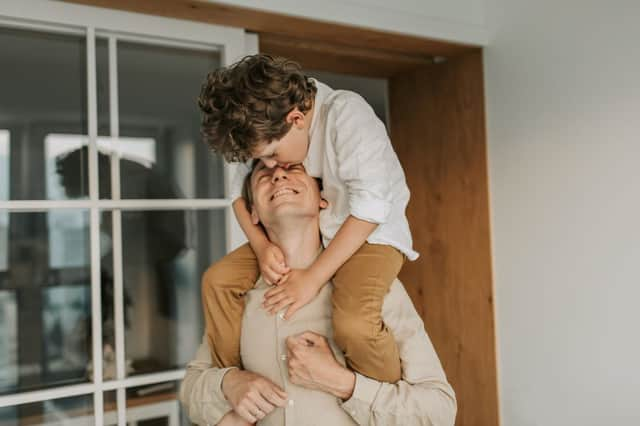Happiness lasts longer after your favourite sports team has won compared to hearing your partner say ‘I love you’


A poll of 2,000 adults found hearing those three sweet words makes people feel good for an average of four hours – but the boost of a win for a favourite team is still there four hours and nine minutes later.
Spending time with family gives people the longest glow, at four hours and 33 minutes, closely followed by booking a holiday and sporting a glowing tan when you get home.
Advertisement
Hide AdAdvertisement
Hide AdBut finishing a workout leaves Brits feeling happier for 30 minutes longer than tucking into junk food.
And bagging a bargain, which leaves people feeling satisfied for three hours and 39 minutes, is better than eating a chocolate bar, being complimented, and having a cold alcoholic drink on a hot day.
Life's happiest events
The research was commissioned by Capital One UK to mark the opening of Happé Café on 1st and 2nd September; the UK’s first dopamine-inducing café designed to give people a necessary mood boost.
When quizzed on the activities which make Brits feel most happy, 27 per cent said it was spending time with family, while 23 per cent get their dopamine hit from taking a walk in nature.
Advertisement
Hide AdAdvertisement
Hide AdThe birth of a child (21 per cent), getting married (18 per cent) and the day they met their partner (14 per cent) were cited as life’s happiest events.
While Friday was named the day people are at their most cheerful.
Nearly six in 10 (59 per cent) get their ‘feel good’ from the little things in life as opposed to grand gestures.
And 68 per cent claim they drag out what makes them happy, such as drinking a good cup of tea, to make it last longer.
Advertisement
Hide AdAdvertisement
Hide AdHowever, due to the current financial climate, 39 per cent have had to cut back on the things that bring them happiness.
Takeaways (42 per cent), holidays (39 per cent) and social activities with friends (37 per cent) are among the top sacrifices being made.
But a quarter aren‘t prepared to give up their daily coffee and 21 per cent would continue to go shopping – with 24 per cent feeling a sense of happiness when hitting the high streets.